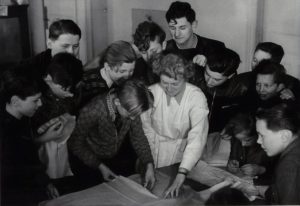Experiential Learning Approaches for Deeper Student Engagement
Experiential learning is becoming an increasingly popular teaching approach in education. It focuses on providing students with hands-on, real-life experiences to enhance their understanding and application of knowledge. This approach has been found to be highly effective in promoting student engagement and deep learning. As educators, it is important for us to employ various techniques to keep our students interested and motivated in their learning journey. In this article, we will explore the different experiential learning approaches that can be used to foster deeper student engagement in the classroom.
What is experiential learning?
Experiential learning, also referred to as hands-on learning, is a student-centered approach that emphasizes the use of real-life experiences as a way of acquiring knowledge and skills. This approach is based on the principle that students learn best when they are actively involved in the learning process and are able to make connections between their experiences and what they are learning.
Rather than just reading or listening to information, experiential learning encourages students to participate in activities that allow them to apply what they have learned in a practical setting. This could include field trips, simulations, role-playing, or hands-on experiments. By engaging in these activities, students are able to gain a deeper understanding of the subject matter and develop critical thinking skills.
The importance of experiential learning for student engagement
Student engagement is crucial for effective learning. It refers to the level of interest, motivation, and active participation that students have in the learning process. Research has shown that experiential learning can greatly enhance student engagement compared to traditional classroom instruction.
One of the main reasons for this is that experiential learning provides a more active and interactive learning experience. Students are actively involved in the learning process, which can help to increase their motivation and interest in the subject matter. This can result in students being more engaged and invested in their learning, leading to a deeper understanding and retention of knowledge.
Furthermore, experiential learning promotes hands-on learning, which is highly effective in engaging students with different learning styles. While some students may thrive in traditional lecture-based settings, others may require more hands-on activities to fully comprehend and retain information. Experiential learning can cater to these different learning styles, making it a highly effective approach for student engagement.
Experiential learning approaches for deeper student engagement
1. Project-based learning
Project-based learning involves students working collaboratively on a project to investigate real-world problems or issues. This approach allows students to explore a topic in-depth and encourages them to take ownership of their learning. By working on a project, students are able to apply their knowledge and skills in a practical setting, leading to a more meaningful and engaging learning experience.
2. Service learning
Service learning integrates community service with classroom instruction. This approach allows students to apply their knowledge and skills to real-world situations while also making a positive impact in their community. Service learning not only promotes deeper student engagement, but it also develops important social and citizenship skills.
3. Field trips and simulations
Field trips and simulations provide students with first-hand experiences that connect to the subject matter they are learning. This approach allows students to see how the knowledge and skills they are acquiring in the classroom can be applied in real-life situations. By experiencing the subject matter in a hands-on way, students are more likely to retain the information and develop a deeper understanding of the concepts.
Conclusion
Experiential learning is a powerful tool that can greatly enhance student engagement in the classroom. By providing students with hands-on, real-life experiences, we can foster a deeper understanding and application of knowledge. As educators, it is important for us to incorporate various experiential learning approaches to cater to the diverse learning needs of our students. By doing so, we can create a more engaging and meaningful learning experience for our students.











